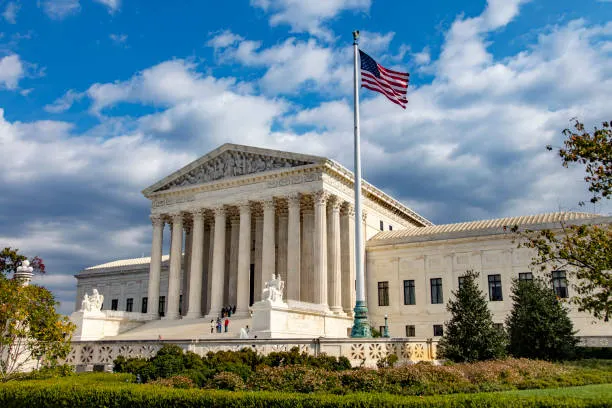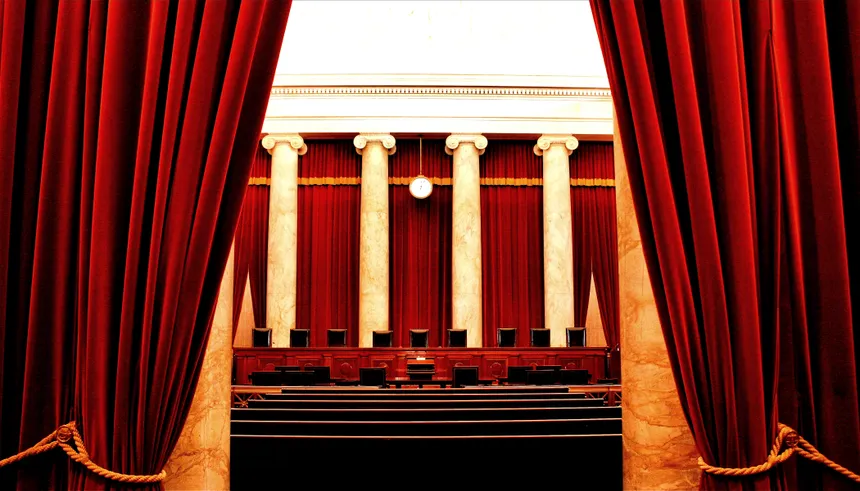A Landmark Case in the Supreme Court
The U.S. Supreme Court is preparing to review Tennessee’s ban on gender-affirming care for minors, a case that could set a precedent for similar laws across the country. The decision will impact not only Tennessee but also other states that have enacted or are considering similar restrictions.
Background: What is Gender-Affirming Care?
Gender-affirming care includes medical and psychological treatments designed to support individuals whose gender identity does not align with their sex assigned at birth. These treatments can range from hormone therapy to counseling and, in some cases, surgery.

Key Components of Gender-Affirming Care:
- Hormone Blockers: Medications that pause puberty to give minors more time to explore their gender identity.
- Hormone Therapy: The use of estrogen or testosterone to help align a person’s physical characteristics with their gender identity.
- Counseling & Mental Health Support: Therapy to assist individuals in understanding and coping with gender dysphoria.
- Surgical Procedures: Though rare for minors, some transgender individuals opt for surgeries later in life.
Tennessee’s Ban: What It Entails
In 2023, Tennessee passed a law prohibiting gender-affirming medical treatments for individuals under 18. This law:
- Bans doctors from prescribing puberty blockers or hormone therapy to minors.
- Prohibits gender-affirming surgeries for those under 18.
- Allows minors already undergoing treatment to continue until a certain age but prevents new patients from starting treatment.
- Imposes penalties on healthcare providers who violate the law, including the loss of medical licenses.

The Legal Battle: How Did It Reach the Supreme Court?
Following the law’s passage, several advocacy groups, including the American Civil Liberties Union (ACLU), challenged it in court, arguing that it violates the constitutional rights of transgender minors and their families. Lower courts have issued conflicting rulings, which led the case to the Supreme Court.
Key Legal Arguments:
- Plaintiffs (Opponents of the Ban):
- Argue that the law discriminates against transgender individuals, violating the 14th Amendment’s Equal Protection Clause.
- Claim that the ban infringes on parental rights to make medical decisions for their children.
- Highlight research showing that gender-affirming care significantly reduces suicide rates and mental health struggles among transgender youth.
- Defendants (Supporters of the Ban):
- Maintain that gender-affirming treatments for minors are experimental and could cause irreversible harm.
- Argue that the state has a duty to protect children from potentially harmful medical interventions.
- Claim that minors should wait until adulthood before making decisions about gender-affirming care.

National Impact: Why This Case Matters
The Supreme Court’s ruling will have far-reaching consequences:
- Other States: Several states have passed similar bans, while others allow unrestricted access to gender-affirming care. A ruling will influence future legislation.
- Healthcare Providers: Medical professionals will need to navigate potential new federal guidelines on gender-affirming care.
- LGBTQ+ Rights: The decision will shape the legal landscape for transgender rights in the U.S.
Expert Opinions: What Do Medical Professionals Say?
Most major medical organizations, including the American Medical Association (AMA) and the American Academy of Pediatrics (AAP), support gender-affirming care for minors. Studies suggest that these treatments significantly improve the mental health and well-being of transgender individuals. However, some experts warn about the long-term effects of hormone treatments, arguing for more research and caution in treating minors.
Public Reactions: A Deeply Divided Nation
The case has sparked intense debate, with both supporters and opponents of the ban voicing strong opinions.
- Supporters of the Ban Say:
- Minors should not make life-altering medical decisions.
- The law protects children from potential regret and long-term health risks.
- Parents and lawmakers should prioritize caution over ideology.
- Opponents of the Ban Say:
- Gender-affirming care is lifesaving and backed by medical research.
- The law interferes with parental rights and doctor-patient relationships.
- Transgender minors deserve the same medical rights as others.
What’s Next? The Road to a Supreme Court Decision
- Oral Arguments: Expected in the coming months, where both sides will present their cases.
- Potential Ruling Date: The Supreme Court is likely to issue its decision within the next year.
- Possible Outcomes:
- The Court upholds Tennessee’s ban, leading to similar laws nationwide.
- The Court strikes down the law, reinforcing protections for transgender minors.
- A compromise ruling that sets new guidelines without fully banning or allowing gender-affirming care.
Conclusion: A Defining Moment for Transgender Rights in America
This Supreme Court case is a pivotal moment for LGBTQ+ rights, healthcare policy, and parental rights in the U.S. As the country watches closely, the outcome will shape the future of gender-affirming care for minors and set a significant legal precedent for years to come. Beyond Tennessee, this ruling could influence future legal battles, medical guidelines, and even insurance policies covering transgender healthcare. Activists, lawmakers, and families across the nation are anxiously awaiting a decision that could define access to essential medical care for years to come. Regardless of the ruling, the debate over transgender rights and healthcare is far from over, and further legal challenges or new legislation are likely to follow.
Do Follow USA Glory For More Updates.






